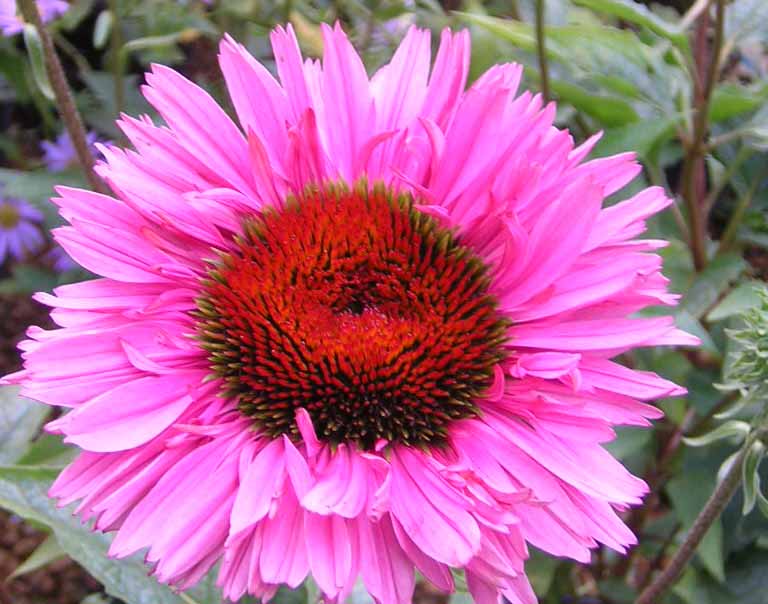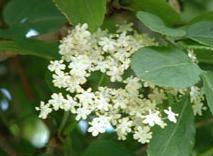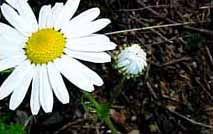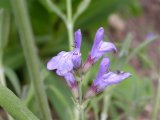Naturopathic health
Hayfever Alternative Treatments
Hayfever Herbal Remedies & Complementary TherapiesMillions of people in the UK suffer with hayfever every year. Hayfever or allergic rhinitis is usually seasonal, as it is related to plant pollens, such as tree pollens or grass pollens. However some people suffer hayfever type symptoms at any time of year as they are susceptible to multiple allergens Signs & symptoms The typical symptoms of hayfever include frequent sneezing, runny nose, red, itchy, puffy, watery eyes, irritated throat and fatigue. Cause Hayfever often runs in families, along with childhood onset asthma and eczema. It arises due to an immunological reaction to an external allergenic substance. The immune system becomes primed and ready to act as soon as the pollen is detected by the body and produces an immune response by releasing histamine, which encourages local inflammation, giving rise to swelling, redness and itchiness in the nasal passages. Because the sinuses are linked to the nasal passages and the sensitive lining of the eyelid, the eyes are also affected, becoming red, itchy, puffy and watery. Treatment Treatment should begin about 1 month before the individual’s hayfever season usually begins, in order to boost the immune system and ultimately prevent hayfever. Listed below are some of the common natural remedies for hayfever Herbal Remedies: Echinacea Tincture Echinacea is an immune-modulating and immune-enhancing herb, as well as being anti-inflammatory. It boosts the immune system helping to prevent colds and flus and may help reduce sensitivity to allergens. It also helps to reduce inflammation and is effective in the treatment of nasal catarrh. Elderflower Tincture The elderflower tree comes into flower around May, producing heavy, white clusters of flowers, and bringing misery to many hayfever sufferers. However, elderflower is widely used in the treatment of hayfever as it is cooling and anti-catarrhal, helping to dry up the copious mucus from the inflamed nasal passages. Plantain or Ribwort Tincture Plantain is a common plant growing in lawns and meadows. It soothes inflamed and irritated mucous membranes and dries up mucus. The goldenseal root is traditionally used for upper respiratory tract infections, where there is yellow catarrh and heat symptoms, such as fever. It is a fantastic mucous membrane restorative and also enhances the immune system. It is however not suitable during pregnancy. Another common weed found in the garden, nettle is anti-allergic when used in herbal form. It must be the fresh nettle tincture that is taken, as this preserves the key ingredient – formic acid. Nettles are very nutritious plants, high in many minerals, such as silica and potassium, as well as Vitamins A & C. Chamomile Tincture Chamomile is a wonder herb and is especially useful in the treatment of children. It is anti-inflammatory, anti-allergic and anti-microbial. Chamomile is an excellent relaxant, calming anxiety and insomnia often brought about by hayfever. It enhances the immune system, helping to reduce allergies. Ginger Tincture Ginger root is a hot and spicy herb that warms the body to its extremities and is useful for drying up profuse, runny mucus. Sage Tincture Sage relieves inflammation of the throat and soothes the mucous membranes and can be useful in the treatment of hayfever. (Do not use in pregnancy). Steam inhalations Chamomile can also be bought as a dried herb and used in steam inhalations to clear the nasal passages and relieve itchy, red eyes. Eye soothers Cold chamomile tea bags can also be very soothing to red, itchy and inflamed eyes. Or cold chamomile tea used as an eye bath. Supplements A good quality multi-vitamin will ensure that the body is receiving the correct balance of vitamins and minerals required for a healthy immune system. Vitamin C is the main antioxidant in the cells of the respiratory passages, and it supports the immune system. Quercetin is a potent antioxidant and has an anti-inflammatory action that may help relieve allergic respiratory reactions such as hayfever. A good quality fish or hemp seed oil is high in omega-3 fatty acids, and may help to reduce inflammation. Garlic boosts the immune system and is antioxidant, as well as having many other health benefits. Diet A diet low in mucus-forming foods may help hayfever sufferers. Reduce the following in the diet up to 1 month before symptoms usuallybegin: wheat, dairy, sugar, processed foods, cakes & pastries Increase the following in the diet: fruit, vegetables, salad, oily fish, pulses, brown rice, water Always consult a practitioner to work out the best and safest treatment plan Naturopath's treat the whole person not just the disease or condition. That's why you cannot use this site for diagnosis or treatment. The information we provide should not be treated as a substitute for medical advice or treatment. We recommend that you visit a qualified naturopath or find a GP who is sympathetic to a naturopathic approach. Click here for our full disclaimer. |
Ailments
Find a naturopath
Lifestyle
Information about Echinacea herbal remedy |
|
|
|
|
If you're starting to move towards a healthy diet and you want to take a major step forward then a detoxification programme can make a big difference. Click on the link below to find out more. Healthy Recipes Juicing SupplementsBach Flower Herbal Acupuncture Homeopathy DetoxificationMassage Qi Gong Nutrition & Diet Iridology Tissue Salts |












